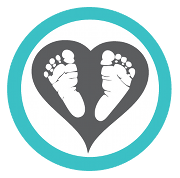Physicians don't usually discuss depression with pregnant patients, especially if the expectant moms comes in looking pretty happy about the pregnancy. But this does not mean you do not have depression or aren't at risk for it. Symptoms sometimes come and go or we chalk them up to pregnancy hormones.
Women suffering from depression are less likely to seek prenatal care so may experience unexpected complications including preterm delivery, especially as depression gets worse. Preterm deliveries are the leading cause of infant illness and even death. It may be that depression affects placental hormones which may trigger this early labor. And, a depressed mother may not have the good reasoning and coping skills needed to avert an early delivery - she may even believe that delivering the baby will end the bad feelings she has so she is anxious to deliver but she can't see the bigger picture of how this might harm the baby (after all, many babies are healthy at 36 weeks, she feels). She may be unable to see how even the surviving babies require much more intense care and prolonged hospital stays with the stress and depression that comes with this.
Depressed women may self-medicate with alcohol, narcotic drugs, or over-the-counter medications. This poses a dual health risk: self-medicating can be harmful to a developing child and people who are depressed are more likely to struggle with substance abuse.
If you're pregnant and feeling signs of depression, you may need to be the one to bring it up with your health care provider (doctor or midwife). There are many options for treating depression during pregnancy, including antidepressant medication, psychotherapy, light therapy, and alternative treatments such as acupuncture. Untreated depression can put your health or your baby's at risk.
Untreated depression in pregnancy may also predict postpartum depression after the birth of the baby. Just when you think everything's going to be cheery again once you are no longer suffering the discomforts of pregnancy, along comes the unexplainable sadness of PPD. This can make it difficult to care for yourself and your baby and can cause bonding difficulties which can have long-term consequences.
If you are worried about taking a prescribed medication in pregnancy, be sure to contact the Pregnancy Risk Line. As with all exposures in pregnancy, risk and benefits must be weighed but it is believed that depression is very much undertreated in pregnancy due to the fears of medication problems. However, the risks that come with depression are often much greater than the potential or theoretical risks of medication use.
Another common problem is that the mother chooses to reduce (if not completely eliminate) her prescribed medication because the packaging says, "do not take in pregnancy or breastfeeding". This is because of the FDA requirements for labeling of medication and testing procedures. The PRL can help you sort through this information because there are other tracking mechanisms besides the usual drug testing. (801-328-2229 or 800-822-2229)
To take less than the therapeutic amount of an antidepressant will likely not control the depression and yet still carry the small theoretical risks, so taking a half dose really does not make sense. It needs to be a sufficient amount to control the mother's symptoms to do any good. Reducing the dose merely gives you a false sense of risk reduction.
Eliminating a medication suddenly can also cause a rebound depression - something you don't need in pregnancy for sure. So, if you decided you want to stop antidepressant treatment, do so ONLY under the direction and knowledge of your practitioner. Gradual weaning is usually preferable to "cold turkey."
Talk to your doctor or midwife about alternative treatments if you suffer from depression and don't want to take medication. Acupuncture, light therapy, exercise and talk therapy can all help reduce the symptoms of depression. In some cases, results are not seen right away, but they will likely help and won't hurt.
Mayo Clinic has a quick depression screening tool - not specific for pregnancy. It can sometimes be difficult to determine if symptoms are due to pregnancy hormones or actual depression but if you score depressed to any degree, you should discuss it with your doctor or midwife.
























No comments:
Post a Comment
This blog only reviews comments before posting to avoid hijacking. We will respond to comments Mon-Thurs but we are closed Fri-Sun and legal holidays.